Social Structure and Change \ 1-1

Likes have become a central issue of social life for today's people. From music to food, from clothing to holidays, from speech to venue, issues of taste are becoming more and more prominent. Therefore, tastes at the intersection of the individual and the social have more value than ever before in terms of understanding social change. The book in your hand consists of six articles compiled from the seminar series held by the İLEM Specialized Community Working Group in the 2016 Spring term. The articles mainly discuss the social change in daily life through tastes. It is aimed that this work, which will be a fundamental contribution to the field of the sociology of taste, which has recently come to the fore in our country, will be the basis for new discussions.

What is social change?
How do societies change?
What are the main theories explaining change?
What are the main dynamics of change in Turkey?
Social change is a fundamental field that concerns all subjects, concepts and theories of sociology. From the beginning to the present, many explanations about change have emerged in the sociology literature. Understanding the accumulation of these explanations is very important for a sociology student. Understanding change is essential for analyzing the workings of society.
Turkey's social structure is in a rapid and permanent change. Comprehensive and sustained research and new perspectives are needed to understand and explain this change. However, social change has not attracted much attention from sociology in Turkey. The number of theoretical studies, conceptual studies and empirical researches in the field is very few. This work in your hand was written within the scope of Social Structure Research Program to fill such a gap.
This book, which consists of 16 chapters, examines the concepts, theories and approaches related to change in sociology. The topics covered in this book, which is also designed as a textbook, are handled simply and expanded with examples. With the concept explanations, biographies and reading passages added to the chapters, the flow of the book is tried to be relaxed and different windows are opened in the mind of the reader.
How do societies change?
What are the main theories explaining change?
What are the main dynamics of change in Turkey?
Social change is a fundamental field that concerns all subjects, concepts and theories of sociology. From the beginning to the present, many explanations about change have emerged in the sociology literature. Understanding the accumulation of these explanations is very important for a sociology student. Understanding change is essential for analyzing the workings of society.
Turkey's social structure is in a rapid and permanent change. Comprehensive and sustained research and new perspectives are needed to understand and explain this change. However, social change has not attracted much attention from sociology in Turkey. The number of theoretical studies, conceptual studies and empirical researches in the field is very few. This work in your hand was written within the scope of Social Structure Research Program to fill such a gap.
This book, which consists of 16 chapters, examines the concepts, theories and approaches related to change in sociology. The topics covered in this book, which is also designed as a textbook, are handled simply and expanded with examples. With the concept explanations, biographies and reading passages added to the chapters, the flow of the book is tried to be relaxed and different windows are opened in the mind of the reader.

“Daily habits, attitudes and practices, or in other words, daily “actions, practices and modes of production” are not seen as the dark, sunless ground of social activities, and this is a theoretical, methodological, classification and observational way of moving from the darkness of the night to the light. When a series of questions can be articulated behind this research, we will have achieved our goal”.
Michel de Certeau
Everyday life is both a production and a consumption area, which becomes ambiguous and ambiguous under the demonstrative lights of modernity, which is treated implicitly as well as being the scene of explicit interventions. In this area, there is a need to reveal what is implicit and to understand the implicit aspects of what is open. For this reason, the study has been carried out in sections by determining the main points that are thought to be effective on the field of daily life. While only theoretical information is given in some of the sections, it is aimed to contribute to the field by carrying out both theoretical and applied field studies in the other section. Working in this direction; By reading the daily life through photography, together with the subjects of culture, music, addiction, crime and fear of crime, happiness, wedding, children, media in particular, television, social media and masculinity identity, ethnography and semiotic analysis methods, which are relatively new in sociology, are used as a method in the field of daily life sociology. aims to contribute.
Michel de Certeau
Everyday life is both a production and a consumption area, which becomes ambiguous and ambiguous under the demonstrative lights of modernity, which is treated implicitly as well as being the scene of explicit interventions. In this area, there is a need to reveal what is implicit and to understand the implicit aspects of what is open. For this reason, the study has been carried out in sections by determining the main points that are thought to be effective on the field of daily life. While only theoretical information is given in some of the sections, it is aimed to contribute to the field by carrying out both theoretical and applied field studies in the other section. Working in this direction; By reading the daily life through photography, together with the subjects of culture, music, addiction, crime and fear of crime, happiness, wedding, children, media in particular, television, social media and masculinity identity, ethnography and semiotic analysis methods, which are relatively new in sociology, are used as a method in the field of daily life sociology. aims to contribute.

The conceptions of the nature of man, the ethics of human actions throughout history. determined his political and metaphysical orientations. Therefore, it can be said that many emerging structures, from moral choices to social organizations, from state orders to education systems, are a direct or indirect manifestation of the answer to the question of what human is. For this reason, the question of what man is is central to any conception of the world. modernity. By radically transforming the classical conceptions of the nature of man, he revealed one of the most important breaks in human history. It is therefore a way of achieving a correct understanding of the modern period. It is through identifying and analyzing the transformations of human imagination in this period.
In this book, the debates about the nature of human being in modern Western thought are discussed and the effects of different definitions of human in these fields on the formation and transformation of various scientific disciplines are evaluated. In addition, the book also includes various debates in contemporary Islamic thought, providing an answer to the question of how the transformations that emerged with modernity affect human conceptions in the Islamic world. In this way, readers will have the opportunity to follow the simultaneous and simultaneous effects of the radically changing universe and human imagination.
In this book, the debates about the nature of human being in modern Western thought are discussed and the effects of different definitions of human in these fields on the formation and transformation of various scientific disciplines are evaluated. In addition, the book also includes various debates in contemporary Islamic thought, providing an answer to the question of how the transformations that emerged with modernity affect human conceptions in the Islamic world. In this way, readers will have the opportunity to follow the simultaneous and simultaneous effects of the radically changing universe and human imagination.

The period between 1960 and 1980 is a period that is talked about a lot in Turkey, but little is known about it. This work; tells the story of this critical period through visuals. Islamism, like other currents of thought, became more visible in the 1960s.
and acquired an assertive language. From this point of view, 1960Tar embodies various beginnings for Turkish political and intellectual life and is vital in terms of understanding the aftermath. This book deals with the emergence of new public manifestations of Islam in Turkey since the 1960s. For this purpose, the book is knitted around selected images from magazines. This work, which we call publicized Islam, tells us about the return of the oppressed. As the pages of the book are opened, it is witnessed that Islam gains visibility in public life gradually. The manifestation of a different aspect awaits the reader on each page. This study, which deals with the subject through visuals, offers a new horizon in understanding the intellectual history of Turkey.
and acquired an assertive language. From this point of view, 1960Tar embodies various beginnings for Turkish political and intellectual life and is vital in terms of understanding the aftermath. This book deals with the emergence of new public manifestations of Islam in Turkey since the 1960s. For this purpose, the book is knitted around selected images from magazines. This work, which we call publicized Islam, tells us about the return of the oppressed. As the pages of the book are opened, it is witnessed that Islam gains visibility in public life gradually. The manifestation of a different aspect awaits the reader on each page. This study, which deals with the subject through visuals, offers a new horizon in understanding the intellectual history of Turkey.

In today's world where the expressions of the imagination of civilization are used frequently, it is necessary to realize that civilization is and can be based on a philosophical unity and harmony in order for the actual content and meaning of this term to be realized.
Civilization and Philosophy is a study that brings up the mutual relations of these two fields and what they owe to each other. It seems to be an invitation to examine and scrutinize these areas. The studies brought together in this book, which can be read as a landmark on the way to reach the philosophical consciousness of our civilization and to make a philosophical critique, had previously reached a limited audience as articles, papers and conferences. Now, this issue, which is one of the main agenda items of Turkish Thought, is presented to the attention of a wider readership.
We hope that this work will be an opportunity to realize that the idea of a civilization without philosophy would be wrong.
Civilization and Philosophy is a study that brings up the mutual relations of these two fields and what they owe to each other. It seems to be an invitation to examine and scrutinize these areas. The studies brought together in this book, which can be read as a landmark on the way to reach the philosophical consciousness of our civilization and to make a philosophical critique, had previously reached a limited audience as articles, papers and conferences. Now, this issue, which is one of the main agenda items of Turkish Thought, is presented to the attention of a wider readership.
We hope that this work will be an opportunity to realize that the idea of a civilization without philosophy would be wrong.
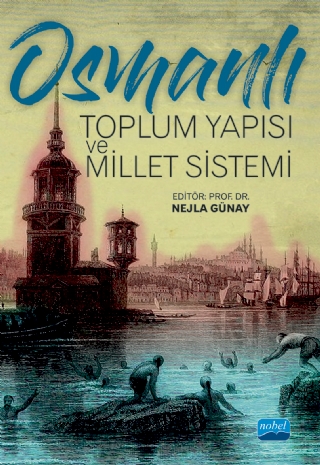
The Ottomans managed to maintain their unity and integrity in three continents by establishing and administering one of the longest-lived states in the world, in a geography known as the old world continents. It would be a wrong approach to base this success only on military power. Because the Ottoman Empire was able to maintain its existence for about three more centuries after losing its military power. So, to understand this, “How did the Ottomans provide peace and prosperity in the Middle East, the Balkans and the Caucasus, where turmoil is dominant today?” The answer to the question must be sought. Thus, it will be possible to find clues on how to improve the relations of societies with different cultures and beliefs with each other and how to achieve peace.
The Ottoman State showed the sensitivity of managing the beliefs and values of its people with different origins, beliefs and cultural characteristics, rather than interfering and preventing them. The most important aim of the state was to ensure peace and tranquility through the society's coexistence within the framework of mutual respect. For this reason, he developed a management model called the "Ottoman Nation System" and accepted different religions as interlocutors before the newly established religious institutions and leaders to represent them. The Ottoman State connected the Orthodox Christian people and especially other Christian elements in the Balkans to the Fener Greek Patriarchate, the Armenian people to the Armenian Patriarchate, and the Jewish people to the religious leader known as the Chief Rabbi and ruled through them. According to this, the leader of each congregation was obliged to collect the tax that his congregation had to pay, to deliver it to the treasury and to ensure that the members of the congregation comply with the laws set by the state. On the other hand, the state did not interfere with the religious and cultural lives of the communities by leaving them free in their own internal order.
The Ottoman State showed the sensitivity of managing the beliefs and values of its people with different origins, beliefs and cultural characteristics, rather than interfering and preventing them. The most important aim of the state was to ensure peace and tranquility through the society's coexistence within the framework of mutual respect. For this reason, he developed a management model called the "Ottoman Nation System" and accepted different religions as interlocutors before the newly established religious institutions and leaders to represent them. The Ottoman State connected the Orthodox Christian people and especially other Christian elements in the Balkans to the Fener Greek Patriarchate, the Armenian people to the Armenian Patriarchate, and the Jewish people to the religious leader known as the Chief Rabbi and ruled through them. According to this, the leader of each congregation was obliged to collect the tax that his congregation had to pay, to deliver it to the treasury and to ensure that the members of the congregation comply with the laws set by the state. On the other hand, the state did not interfere with the religious and cultural lives of the communities by leaving them free in their own internal order.

At first glance, the issue of health is perceived as a purely medical issue by large segments. Those who can take a closer look at the subject can see immediately that medicine is actually involved in the last stage of any health problem. The health of individuals goes through many stages until it becomes a medical issue and can be the subject of many other scientific fields. This is because it was well understood by the universities in the West, especially in the USA, that in these countries there are many branches and innumerable researchers outside of medicine dealing with health problems.
After the first publication of this book, social science researchers began to focus on health problems in our country. Some books and researches on the subject are made and published every year. The way to be healthy is actually not to lose our health. The creation of such a ground will only be possible if the social sciences are more actively involved in the solution of the country's problems.
Approaching "health" through social sciences is also important in terms of protecting the resources of our country, which is not very developed economically. Our investments are mostly in how sick individuals can be brought back to life, for example, we continue to build new hospitals. On the contrary, modern societies focus on how individuals can not get sick and develop their health policies at this point. The development of this understanding can be done much better by the social sciences. In order to be more effective in solving the health problems of our country, social science information should be discovered especially by the administrators. This book in your hand will help our people to understand their health problems from a better and broader perspective.
After the first publication of this book, social science researchers began to focus on health problems in our country. Some books and researches on the subject are made and published every year. The way to be healthy is actually not to lose our health. The creation of such a ground will only be possible if the social sciences are more actively involved in the solution of the country's problems.
Approaching "health" through social sciences is also important in terms of protecting the resources of our country, which is not very developed economically. Our investments are mostly in how sick individuals can be brought back to life, for example, we continue to build new hospitals. On the contrary, modern societies focus on how individuals can not get sick and develop their health policies at this point. The development of this understanding can be done much better by the social sciences. In order to be more effective in solving the health problems of our country, social science information should be discovered especially by the administrators. This book in your hand will help our people to understand their health problems from a better and broader perspective.
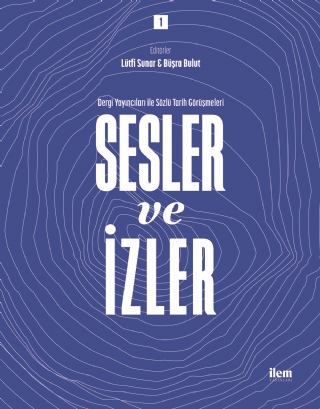
Recent developments in the world and in Turkey have accelerated the studies on the history of thought and brought these discussions to the center. Islamism, too, constitutes one of the most vibrant areas of Turkey's political and intellectual life. The increase and interest in the number of discussions and publications on Islamic thought determined the quality of the studies, while at the same time allowing the sources to diversify. As in all political views, press and publications have an important place in Islamist thought. Ideas in this field have carried out publishing activities in order to convey their message to large masses. In this sense, in order to understand the history of Islamism, it is necessary to understand the history of the press.
The Islamist Journals Project (İDP), which was implemented by the Scientific Studies Association (ILEM) in 2013, aimed to add a new dimension to the thought and debate on Islamism and to contribute to the rethinking of Islamist issues through journals, which are the most important primary source of Islamist thought. Within the scope of the project, these journals were archived and made available digitally. The fact that the printed source has become accessible has illuminated a large area in the context of the determination, explanation and comparison of words, actions and facts in this field. The IDP Oral History study further expanded this field and colored and diversified the period researches through the personal testimonies of the actors who gave life to the printed sources. This book in your hand includes interviews with 34 people within the scope of oral history. This book, in which 34 different names testify, gives a lot of information about the adventure, transformations and fractures of Islamist thought in Turkey after 1970. These narratives may not radically change what we know, on the contrary, they may confirm the presuppositions we have in the study of the period, provide a new perspective, or point to a point that is not always said behind what is said. What we want to do with this book is not to confirm the information and fact in the printed sources, but to approach the period under study in different ways.
The Islamist Journals Project (İDP), which was implemented by the Scientific Studies Association (ILEM) in 2013, aimed to add a new dimension to the thought and debate on Islamism and to contribute to the rethinking of Islamist issues through journals, which are the most important primary source of Islamist thought. Within the scope of the project, these journals were archived and made available digitally. The fact that the printed source has become accessible has illuminated a large area in the context of the determination, explanation and comparison of words, actions and facts in this field. The IDP Oral History study further expanded this field and colored and diversified the period researches through the personal testimonies of the actors who gave life to the printed sources. This book in your hand includes interviews with 34 people within the scope of oral history. This book, in which 34 different names testify, gives a lot of information about the adventure, transformations and fractures of Islamist thought in Turkey after 1970. These narratives may not radically change what we know, on the contrary, they may confirm the presuppositions we have in the study of the period, provide a new perspective, or point to a point that is not always said behind what is said. What we want to do with this book is not to confirm the information and fact in the printed sources, but to approach the period under study in different ways.
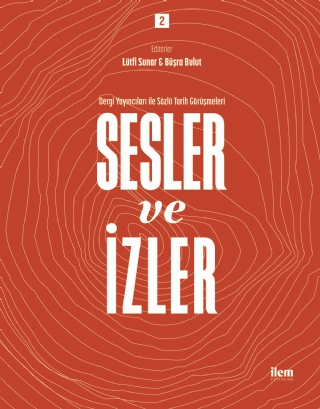
Recent developments in the world and in Turkey have accelerated the studies on the history of thought and brought these discussions to the center. Islamism, too, constitutes one of the most vibrant areas of Turkey's political and intellectual life. The increase and interest in the number of discussions and publications on Islamic thought determined the quality of the studies, while at the same time allowing the sources to diversify. As in all political views, press and publications have an important place in Islamist thought. Ideas in this field have carried out publishing activities in order to convey their message to large masses. In this sense, in order to understand the history of Islamism, it is necessary to understand the history of the press.
The Islamist Journals Project (İDP), which was implemented by the Scientific Studies Association (ILEM) in 2013, aimed to add a new dimension to the thought and debate on Islamism and to contribute to the rethinking of Islamist issues through journals, which are the most important primary source of Islamist thought. Within the scope of the project, these journals were archived and made available digitally. The fact that the printed source has become accessible has illuminated a large area in the context of the determination, explanation and comparison of words, actions and facts in this field. The IDP Oral History study further expanded this field and colored and diversified the period researches through the personal testimonies of the actors who gave life to the printed sources. This book in your hand includes interviews with 34 people within the scope of oral history. This book, in which 34 different names testify, gives a lot of information about the adventure, transformations and fractures of Islamist thought in Turkey after 1970. These narratives may not radically change what we know, on the contrary, they may confirm the presuppositions we have in the study of the period, provide a new perspective, or point to a point that is not always said behind what is said. What we want to do with this book is not to confirm the information and fact in the printed sources, but to approach the period under study in different ways.
The Islamist Journals Project (İDP), which was implemented by the Scientific Studies Association (ILEM) in 2013, aimed to add a new dimension to the thought and debate on Islamism and to contribute to the rethinking of Islamist issues through journals, which are the most important primary source of Islamist thought. Within the scope of the project, these journals were archived and made available digitally. The fact that the printed source has become accessible has illuminated a large area in the context of the determination, explanation and comparison of words, actions and facts in this field. The IDP Oral History study further expanded this field and colored and diversified the period researches through the personal testimonies of the actors who gave life to the printed sources. This book in your hand includes interviews with 34 people within the scope of oral history. This book, in which 34 different names testify, gives a lot of information about the adventure, transformations and fractures of Islamist thought in Turkey after 1970. These narratives may not radically change what we know, on the contrary, they may confirm the presuppositions we have in the study of the period, provide a new perspective, or point to a point that is not always said behind what is said. What we want to do with this book is not to confirm the information and fact in the printed sources, but to approach the period under study in different ways.
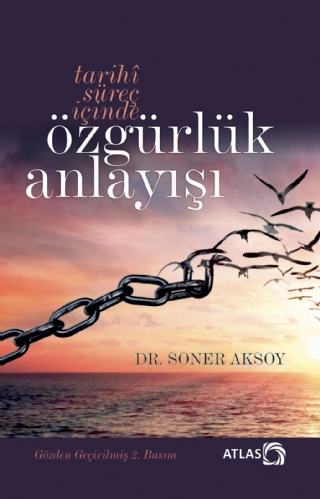
Objecting is an important act of courage that not everyone uses. This action has an important place in the life of thinking people. Those who use their minds may prefer to criticize while thinking and to judge when necessary. While some object to it from within, others express it. That's what I like to express without hesitation. Actually, I don't want to make it seem like a person to accept everything that is said, read or even see, and swallow it like a pill without question.
My purpose is not to mean a blind person who opposes everything that comes his way without thinking, back and forth, constantly objecting. I think that transferring the protest action with a reasonable and balanced approach can yield good results. This is a trait we expect from our intellectuals in particular. It should be done in order to tell the truth, to tell what is right without hesitation, to reveal any mistakes or mistakes, and to illuminate a view from a different perspective in order to seek the truth and the better.
Unfortunately, there is such a disease in our country. A secret virus implanted in minds when they were younger. It is almost a secret way of stopping development, growth, change, shooting ourselves in the foot, destroying the creative qualities of our children, killing the excitement and reducing productivity! There is a strong need for an education and training system that kills this hidden virus of society. What we need is serious and responsible for events; They are brave and virtuous young people who do not approach cynically, question, judge, try to learn why and why, and know how to object.
My purpose is not to mean a blind person who opposes everything that comes his way without thinking, back and forth, constantly objecting. I think that transferring the protest action with a reasonable and balanced approach can yield good results. This is a trait we expect from our intellectuals in particular. It should be done in order to tell the truth, to tell what is right without hesitation, to reveal any mistakes or mistakes, and to illuminate a view from a different perspective in order to seek the truth and the better.
Unfortunately, there is such a disease in our country. A secret virus implanted in minds when they were younger. It is almost a secret way of stopping development, growth, change, shooting ourselves in the foot, destroying the creative qualities of our children, killing the excitement and reducing productivity! There is a strong need for an education and training system that kills this hidden virus of society. What we need is serious and responsible for events; They are brave and virtuous young people who do not approach cynically, question, judge, try to learn why and why, and know how to object.
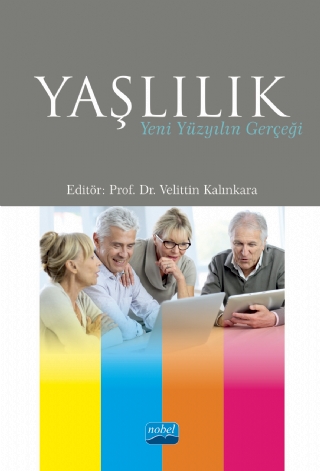
In the twenty-first century, demographic change is taking place that has never happened in world history, and no country is outside this scope. While increasing life expectancy and lowering birth rates are considered great achievements in modern science and health care, their significant impact on future generations is underrated. No matter how long we live, it becomes necessary for every country to rethink and restructure its social and economic institutions in order to ensure the well-being of individuals when working life ends. The aging of societies can affect economic growth and the sustainability of families, the ability of states and societies to provide resources for older people, and many other issues, including international relations. Despite scientific evidence, the importance and global implications of population aging are not yet fully understood. There is a need to raise awareness not only of global aging issues, but also of the importance of rigorous international scientific research and policy dialogue to help us respond to the challenges and opportunities of an aging world.
This book paints a picture of the impact of the aging population on the economy, society, family and environment. We hope this book, consisting of twenty chapters and contributed by 32 authors, will encourage you to identify the best ways to address dialogue, international studies, and the universal human experience about work, economics, family, communication, landscaping, and behavioral issues. We believe that scientists and every member of the society will be inspired by these suggestions and experiences in planning our own future, the aging and aging policies of the world societies and our country.
This book paints a picture of the impact of the aging population on the economy, society, family and environment. We hope this book, consisting of twenty chapters and contributed by 32 authors, will encourage you to identify the best ways to address dialogue, international studies, and the universal human experience about work, economics, family, communication, landscaping, and behavioral issues. We believe that scientists and every member of the society will be inspired by these suggestions and experiences in planning our own future, the aging and aging policies of the world societies and our country.